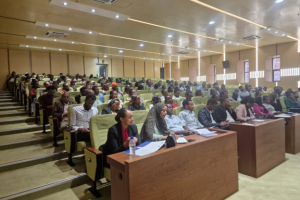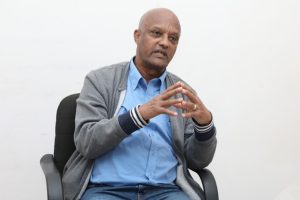
Ethiopian media landscape has been through the thick and thin. And there has never been steady growth as far as it is concerned.
Though described as relatively younger sector, one cannot claim that the 4th state has played its intended role effectively and efficiently in the country. In fact there were times where media outlets mushroomed during transitions periods before coming up to halt with promising growths consequently been short-lived.
Ironically, at this transition time, the media seem to go through a new window of freedom so do the concerns of possible negative repercussion can be triggered by irresponsible reporting.
Addressing ‘Addis Weg’ platform, where different scholars presented their papers on wide ranges of current affairs which the Office of Prime Minister organized.
Prime Minister Dr. Abiy Ahmed stressed the need for ensuring professional and responsible media. He also signaled his frustration what irresponsible and false reporting could do harm to the national security of the country.
The Premier also announced that the preparation of new legislation to counter hate speech is ongoing and the exiting press law is under revision. In addition to legislation, enhancing professionalism and self-regulatory mechanism are key to steer the media landscape in the right track.
These issues were also among the pressing ones raised and discussed at Dialogue in Ethiopia organized by the Press Secretary.
Despite the increasing numbers of satellite and print media, the media due to several factors is lagging behind other industries in terms of ensuring professionalism and serving the public efficiently. Lack of professional management, limited access to information, intimidation against journalists, resources and above all self-censorship are the major factors hindering the journalistic practices media outlets.
The lifting of censorship was a golden opportunity for the media to flourish outlets to begin operating but the media landscape has been under intense scrutiny which amounts to systematic censorship.
The trend proves tough enough to be undone. Poor media management, sometimes in what could be said as ‘more catholic than the pope’ scenario where media managers intermediate and pose threats to journalists in their quest to uncover truthful information against any loopholes and bureaucratic red tape of the government.
But the challenges are also within the media outlets themselves, ascribable to deficit of professionalism and responsibility. That is why as the number of media institutions goes high, people’s concern goes up as well.
Public media have also been at the center of criticisms for being the mouth piece of those in power. So the main task is to balance impartiality and responsibility. The whole practice of the media begs for scrutiny and assessment.
And for the media to function correctly, they have to access to information. From government public relations and communication departments’ side, there are gaps in providing relevant information to media outlets posing challenges to the latter.
In so doing, the media outlets find it difficult to tell the truth and quench the information trust of the people. Specially, as more people attracted to social media platforms, providing information to media organizations is no longer an option but a must do.
In this regard, public relations officers and communicators should have the will and professional competence to provide reporters with the required information not only when requests are made but at own interest.
Besides, the media need to communicate information to the public adhering to professional ethics.
True at it may sound, media professionals should not also abuse the information obtained and use for own vested interest.
Above all, it would be up to media personnel to stick to credible and objective reporting. Other than trying to run emotion laden stories , media outlets need to be forum of rational debate and conversation. In fact, they should provide accurate and timely information to serve the interest of the public, not just to fulfill requirements of media managers.
The press secretary should carry out capacity building activities to equip public relation officers, communicators and journalists with the required professional skills that enable them discharge their responsibilities with an increased accountability. The bottom line is both journalists and public relations officers should only be accountable and faithful to the public not to their bosses.
Herald March 29/2019
BY DESTA GEBREHIWOT




